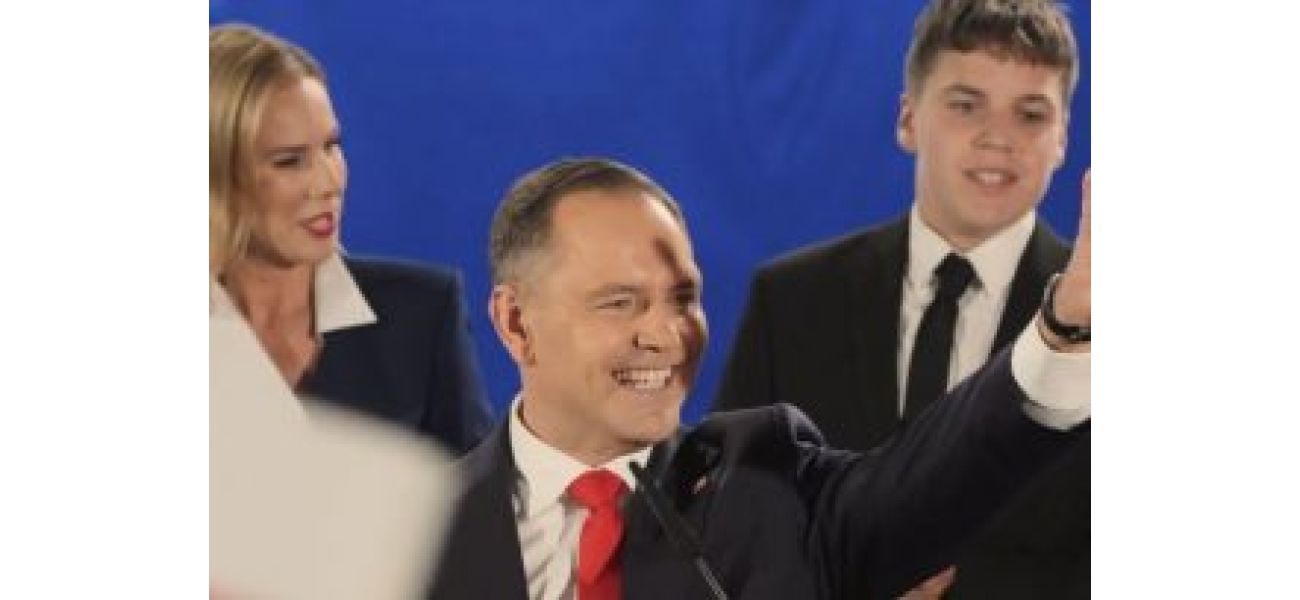Making a right turn.
Poland's right-wing opposition candidate Karol Nawrocki, backed by the nationalist PiS and US President Trump, narrowly won the presidential election with 50.89% of the vote against liberal Rafał Trzaskowski's 49.11%.
June 4th 2025.

In a surprising turn of events, Poland's presidential election ended with a victory for Karol Nawrocki, the Right-wing Opposition candidate. Backed by the nationalist Law and Justice Party and the Trump administration, Nawrocki secured 50.89 per cent of the vote, narrowly defeating liberal Warsaw Mayor Rafał Trzaskowski who received 49.11 per cent. This outcome was a dramatic shift from initial exit poll results, which had predicted Trzaskowski as the winner with a 2 percentage point margin of error. The voter turnout was high at 71.6 per cent. This victory for the Right comes on the heels of a win for liberal forces in Romania just a few weeks prior.
The results of this election serve as a clear indication of the growing frustration among the people, particularly young voters, with the established liberal parties who have failed to deliver on their promises. This trend is not unique to Poland, as many countries in Europe are experiencing a rise in Far-Right parties due to this same discontent. Traditional voters are tired of the pro-immigration, pro-LGBTQ+ and other policies pushed by the Left, and are turning to parties that prioritize regional interests and nationalism, whether genuine or not. Nawrocki was able to tap into this sentiment, promising to steer Poland away from the European mainstream and towards a more populist direction.
For Prime Minister Donald Tusk's government, Nawrocki's victory is a major setback. The government has already faced challenges from the PiS-aligned incumbent President Andrzej Duda, who has blocked many of their legislative efforts. With Nawrocki as the new president, this conflict is likely to escalate, leading to a paralysis in governance. While the Polish presidency is primarily a ceremonial role, the president holds the power to veto legislation and send it for judicial review, which the Tusk-led coalition does not have the votes to override. This means that Nawrocki could make it difficult for the government to implement key reforms and potentially even push for early parliamentary elections.
Nawrocki's victory also sends a message to liberal politicians, as he overcame a series of damaging allegations about his past. He has been accused of arranging prostitutes for guests while working as a security guard and has a history of participating in violent fights as a football hooligan. He also acquired an apartment from a pensioner under questionable circumstances. Despite these controversies, conservative voters still strongly supported Nawrocki due to their concerns about Trzaskowski's liberal record as mayor of Warsaw. Trzaskowski has been a vocal advocate for LGBTQ+ rights and has clashed with the powerful Roman Catholic Church on several issues.
Nawrocki's campaign centered around the idea of making Poland "normal," which meant opposing the EU's federalist tendencies, rejecting climate policies, and blocking attempts to expand LGBTQ+ rights or relax abortion laws. These are familiar pledges made by Far-Right parties across Europe, who have been capitalizing on the growing immigration problems in the region. It is now up to the Left-leaning parties and leaders to listen to the voice of the people and address their concerns. Otherwise, they risk losing even more ground to the rising tide of the Right.
The results of this election serve as a clear indication of the growing frustration among the people, particularly young voters, with the established liberal parties who have failed to deliver on their promises. This trend is not unique to Poland, as many countries in Europe are experiencing a rise in Far-Right parties due to this same discontent. Traditional voters are tired of the pro-immigration, pro-LGBTQ+ and other policies pushed by the Left, and are turning to parties that prioritize regional interests and nationalism, whether genuine or not. Nawrocki was able to tap into this sentiment, promising to steer Poland away from the European mainstream and towards a more populist direction.
For Prime Minister Donald Tusk's government, Nawrocki's victory is a major setback. The government has already faced challenges from the PiS-aligned incumbent President Andrzej Duda, who has blocked many of their legislative efforts. With Nawrocki as the new president, this conflict is likely to escalate, leading to a paralysis in governance. While the Polish presidency is primarily a ceremonial role, the president holds the power to veto legislation and send it for judicial review, which the Tusk-led coalition does not have the votes to override. This means that Nawrocki could make it difficult for the government to implement key reforms and potentially even push for early parliamentary elections.
Nawrocki's victory also sends a message to liberal politicians, as he overcame a series of damaging allegations about his past. He has been accused of arranging prostitutes for guests while working as a security guard and has a history of participating in violent fights as a football hooligan. He also acquired an apartment from a pensioner under questionable circumstances. Despite these controversies, conservative voters still strongly supported Nawrocki due to their concerns about Trzaskowski's liberal record as mayor of Warsaw. Trzaskowski has been a vocal advocate for LGBTQ+ rights and has clashed with the powerful Roman Catholic Church on several issues.
Nawrocki's campaign centered around the idea of making Poland "normal," which meant opposing the EU's federalist tendencies, rejecting climate policies, and blocking attempts to expand LGBTQ+ rights or relax abortion laws. These are familiar pledges made by Far-Right parties across Europe, who have been capitalizing on the growing immigration problems in the region. It is now up to the Left-leaning parties and leaders to listen to the voice of the people and address their concerns. Otherwise, they risk losing even more ground to the rising tide of the Right.
[This article has been trending online recently and has been generated with AI. Your feed is customized.]
[Generative AI is experimental.]
0
0
Submit Comment





